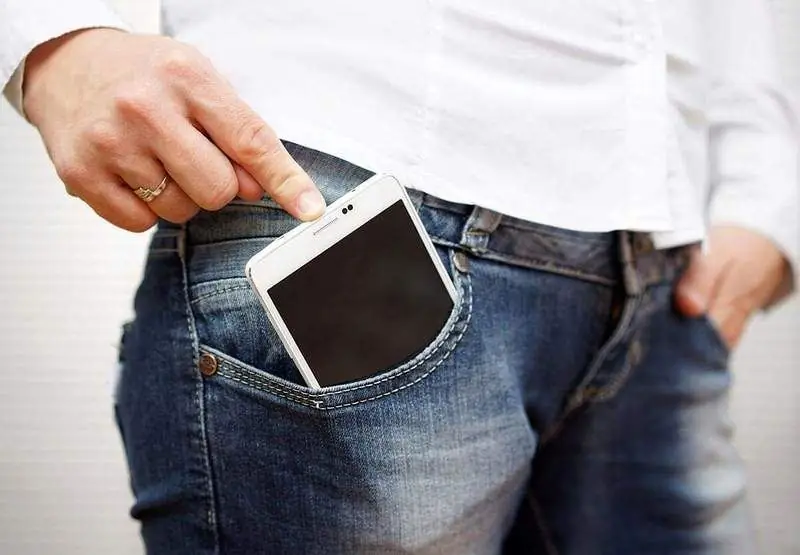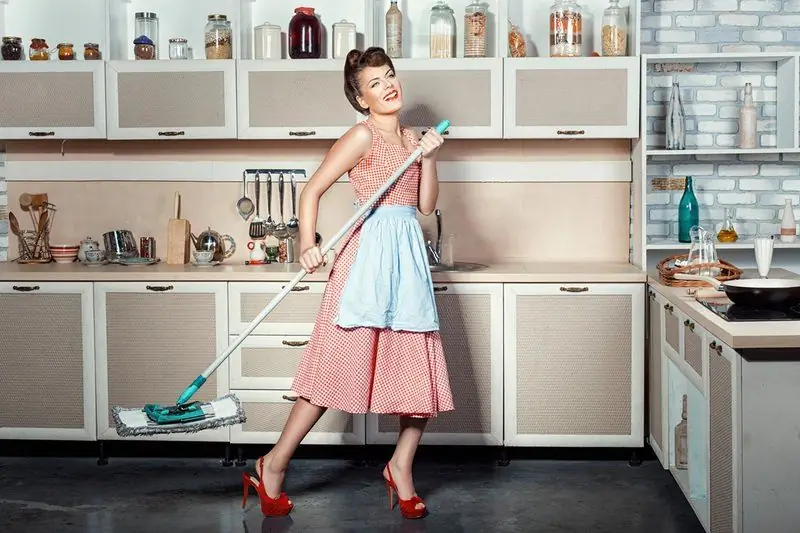
Table of contents:
- Author Bailey Albertson albertson@usefultipsdiy.com.
- Public 2023-12-17 12:53.
- Last modified 2025-01-23 12:41.
Responsibility for parents who put their children in grocery carts

A child in a grocery cart can evoke different emotions and thoughts in people - someone will be lightheartedly touched, and someone will not like that a shod person is in a basket, into which other people will then put their food. Who is right? Is there an administrative penalty for such "rides"? Let's try to figure it out together with lawyers.
Children in grocery carts: pros and cons
Most people still agree that it is better not to roll the child in the cart. But why? The two main motives are the dirt in the grocery carts left over from the child's shoes and the risk of injury.
The first reason sounds reasonable. However, let's not forget that in the same carts they carry sacks of dirty potatoes and personal heavy bags (often dirty after the street). And carts are often stored on the street, in the parking lot. On the other hand, you shouldn't add dirt either - you won't litter on the side of the road just because someone has already littered before you?

For hygiene reasons, the child should only be placed in a special seat - or not at all
The second reason is somewhat more complex. The fact is that, as research by the American Society for Testing Materials has shown, childhood injuries are more likely to occur if the child is not sitting in the cart itself, but in a specially designated place in it. In this position, his legs are especially vulnerable - he will not be able to quickly pull them out of the slots in case of danger or pain. And the fixation with immobile glands, pointwise pressing down on the hips, does not at all inspire confidence. Therefore, from a safety point of view, it is better for the child to be in the cart itself. Many parents know about this (either intuitively or after reading the study), and therefore, even with a special seat, they prefer to put their child to the food.
Is there an official ban
There is no legal prohibition on the transport of a child in a trolley. However, any store has the right to indicate in its charter that it prohibits placing children in non-special seats. In this case, there should be a special warning sign at the entrance to the supermarket (like those that ask you not to enter with ice cream or dogs). If there is no such sign, the store employees have no right to ask you to remove the child from the cart.
What about parents who have no opportunity to leave their child at home during a trip to the store, and employees in the store have clearly defined their position? One option is to take a stroller. Surely there is something like a "luggage compartment" on it - put food there instead of a basket. No store has the right to prohibit wheelchair access, so you can be sure you are not breaking anything. And other customers will be calm - no one once again dirty the carts.
Even the most advanced and modern supermarkets are still poorly equipped for people with children. Therefore, you have to make compromises - either to anger others and employees with a child in a cart, or to compromise your convenience.
Recommended:
Why You Can't Sleep With Your Phone And Carry It In Your Pocket, Including For Men

Harm from the phone in your pocket. Is it possible to sleep with the phone. Effects of radiation on health
Why You Can't Look In The Mirror When You Cry

Superstitions regarding tears in front of a mirror. Where did they go, logical explanation
Why You Can't Why You Can't Wash Floors On Friday: Signs And Facts

Why you can't wash floors on Friday: signs and superstitions. The opinion of the mystics and Orthodoxy
Why You Can't Step On Graves In A Cemetery And What Will Happen If You Break The Ban

Why you can't step on graves in a cemetery: superstition, church opinion, and rational reasons
Why You Can't Carry SNILS In Your Passport

Why you can't keep SNILS in your passport. What happens if fraudsters receive both documents at the same time. Expert advice
